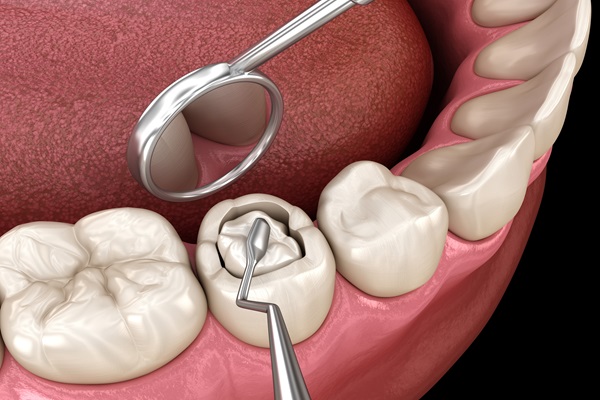Daily Oral Hygiene Routine for Effective Preventive Dentistry

Practicing preventive dentistry allows you to achieve a healthy mouth and body. Having good-looking teeth is a nice compliment. But a healthy mouth is far better. Maintaining oral health every day will prevent dental problems. If you want to establish an effective oral care routine for preventive dentistry, here are the details.
Routine dental checks
Seeing the dentist at least once a year contributes to preventive dentistry. This enables the dentist to check the mouth for any sign of dental problems, including oral cancer. The dentist could then recommend and even start treatment. Dental checks also include professional dental cleaning. This eliminated plaque and tartar.
Cleaning the tongue
Plaque buildup also happens on the tongue’s surface. This can lead to bad breath and other dental issues. Some toothbrush brands have tongue brushes behind the bristle head. Tongue scrapers can do the job. Using the bristles to brush the tongue is also effective.
Brushing the right way
Brushing well is a proper way to practice preventive dentistry. Doing this at least two times a day is important. Knowing how to brush is as crucial as how often it is. Taking time to move the toothbrush in small, circular motions is significant. This allows the bristles to remove the plaque.
Brushing before bed
Sometimes, exhaustion is enough reason to skip brushing before going to bed. Brushing at least two times a day is a basic recommendation in preventive dentistry. This includes brushing at night before sleeping. Doing this removes accumulated bacteria, plaque, and food particles. It reduces the bacteria in the mouth while sleeping for long hours.
Flossing at least once a day
Preventive dentistry recommends flossing before or after brushing. It is as important as brushing. Flossing removes trapped food particles between teeth. It also reduces plaque and lowers inflammation in the area. Running the dental floss between teeth stimulates the gums and increases blood circulation.
Using a fluoride toothpaste
Fluoride is an important element in caring for teeth. This substance can strengthen teeth. Fluoride also leaves a shield around teeth. This prevents the penetration of bacterial acids.
Thinking about mouthwash
A good mouthwash works in three ways. It reduces the bacterial acids in the mouth. This product also re-mineralizes teeth. It reduces and even eliminates tooth sensitivity. Some people have difficulty in flossing and brushing. Using a mouthwash can help improve their oral care routine.
Lowering consumption of acidic and sugary foods or beverages
Sugar tends to become acid inside the mouth. It also feeds bacteria, triggering the release of acids. This substance erodes dental structures. This leads to cavities. Citrus fruits, coffee, and tea can erode dental structures as well. Avoiding these foods contributes to preventive dentistry.
Drinking more water
Water is the healthiest beverage. For oral health, water increases saliva production. Saliva makes the mouth basic. This neutralizes bacterial acids. Water also helps flush food particles. It prevents bacteria from sticking more to the teeth after each meal.
Preventive dentistry can lead to a healthy mouth and body
Practicing proper dental care every day can help maintain good oral and general health. Simple steps like frequent brushing and flossing can lower your risk of developing serious dental problems. Nutrition also plays an important role in keeping your mouth and body healthy. Discussing preventive dentistry with your dentist can teach you more ways to put dental problems at bay.
Are you considering having preventive dentistry treatments in the Maitland area? Get more information at https://www.emergencydentistinorlando.com.
Check out what others are saying about our dental services on Yelp: Preventive Dentistry in Maitland, FL.
Related Posts
Maintaining healthy teeth and gums relies heavily on preventive dentistry. Even though many treatments exist that can remove diseased tissue and repair damage, prioritizing good oral health can eliminate the need for many types of invasive dental work. Seeing a dentist at least once every six months is essential, but practicing good oral hygiene on…
When it comes to preventive dental care, the approach is two-fold. First, it involves going to the dentist for regular checkups and performing any recommended follow-up treatment. Second, good oral health habits are crucial for keeping the body in good working order. For people living with chronic conditions such as diabetes and osteoporosis, keeping up…
Tobacco use counseling has become an important component of preventive dental care. If you are addicted to cigarettes, cigars, pipe tobacco, smokeless tobacco or any other form of tobacco, you can obtain meaningful assistance through tobacco use counseling. This unique approach to preventive dental care has helped countless individuals quit smoking and enjoy improved oral…
Using dental fillings to treat cavities is one of the most common types of routine dental care. The American Dental Association reports that approximately 91% of adults will experience at least one cavity in their permanent teeth at some point in time. Fortunately, the high demand for this type of dental work has led to…


